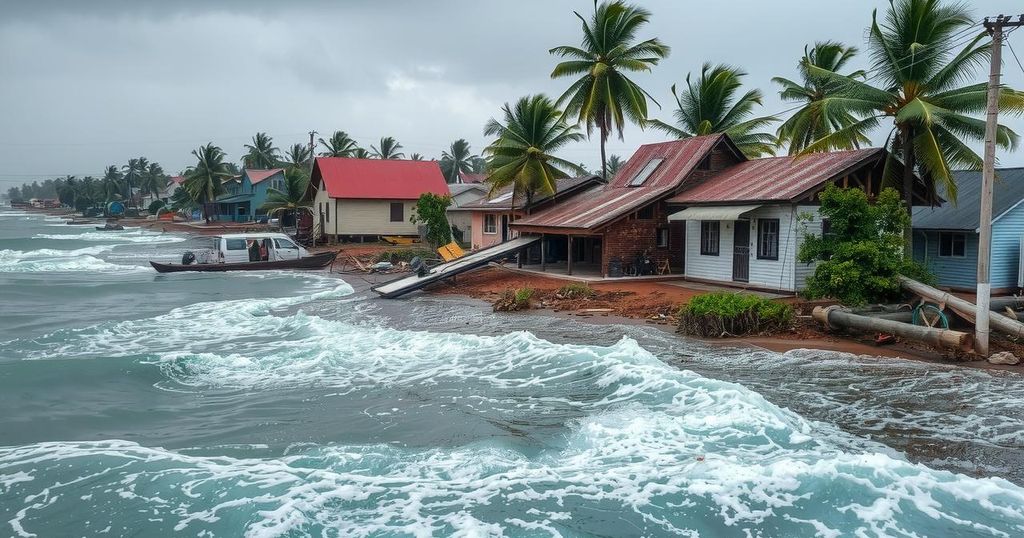Tragedy in Northern Mozambique: Cyclone Chido Leaves 120 Dead and 680,000 Affected

Cyclone Chido has devastated northern Mozambique, resulting in 120 deaths and extensive destruction, impacting over 680,000 individuals. The cyclone, which made landfall on December 15, left significant damage to homes, schools, and health facilities, prompting the establishment of emergency shelters for those displaced. Urgent international assistance is being sought to address the humanitarian crisis.
Cyclone Chido has wreaked havoc in northern Mozambique, leaving at least 120 individuals dead, 868 injured, and more than 680,000 affected according to reports from the country’s national disaster relief agency. The cyclone made landfall on December 15, delivering catastrophic rainfall and storms that primarily impacted the Cabo Delgado, Nampula, and Niassa provinces. Approximately 123,000 families, accounting for around 622,610 people, have suffered due to the cyclone’s destructive forces, which resulted in the destruction of over 140,000 homes, either partially or totally. Furthermore, the storm damaged 250 schools, 89 public buildings, and 52 health facilities, impacting nearly 110,000 students.
In response to the devastation, the Mozambican government has set up two emergency shelters, currently accommodating 1,349 displaced individuals. The National Institute for Disaster Management and Reduction expressed concern through social media regarding the cyclone’s impact on critical sectors such as education and health, stating that “the Cyclone Chido once again highlights the vulnerability of social infrastructure to climate change and the need for resilient planning to mitigate future impacts.”
Cyclone Chido originated as a tropical depression on December 5 over the southwestern Indian Ocean and, after affecting Mayotte, transitioned into a full-fledged cyclone upon making landfall in Mozambique. As authorities and international humanitarian organizations appeal for aid to address emergencies in the regions affected, the widespread reach of this disaster not only underscores the immediate human toll but also highlights the need for long-term infrastructure planning to mitigate future occurrences of such severe weather conditions.
Cyclone Chido struck northern Mozambique as a powerful tropical cyclone, contributing to a significant humanitarian crisis within the affected regions. With heavy rainfall, severe storms, and extensive flooding, the cyclone has had a particularly devastating impact on the provinces of Cabo Delgado, Nampula, and Niassa. Each of these regions has a history of vulnerability to extreme weather events and climate change, making the management and response to such disasters an urgent priority for the government and relief agencies.
In summary, Cyclone Chido has resulted in catastrophic loss of life and property in northern Mozambique, severely impacting the education and health sectors. The need for immediate disaster relief is urgent, while the situation also underscores the necessity for resilient infrastructure planning to protect communities from future cyclonic events. As the aftermath unfolds, international support remains critical to aid recovery efforts and rebuild lives within the affected regions.
Original Source: english.mathrubhumi.com








